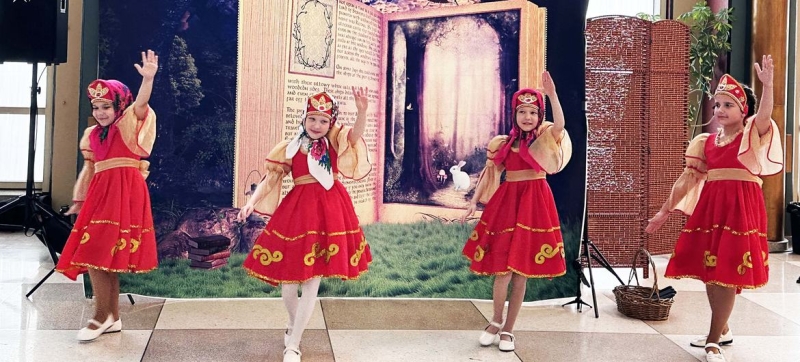
Russian Language Day at the UN headquarters in New York. The UN opened an exhibition for Russian Language Day Culture and education
Every year on June 6, the birthday of Alexander Sergeevich Pushkin, the UN celebrates Russian Language Day. This year marks the 225th anniversary of the birth of the great Russian poet. On this occasion, an exhibition dedicated to Russian folk tales opened at the UN headquarters in New York, and schoolchildren acted out scenes from “The Tale of Tsar Saltan” for diplomats and staff of the world organization.
“Kolobok” at the headquarters on the East River
This week, diplomats and UN staff from different countries can get acquainted with Russian folk tales, such as “Turnip”, “Kolobok”, “Porridge from an Ax” and others, in English. Folk art is featured in stands installed in the lobby of the UN headquarters in New York. Fairy tales, as the annotation for the exhibition says, are passed down from generation to generation, and the characters of their heroes echo the characters of folklore of other peoples of the world. For example, the Russian Morozko and the German Lady Snowstorm, the Russian Ivan the Fool and the Englishman Jack the Lazy Man, indicate that the peoples of the world are closer to each other than many people think. Within the walls of the UN, this idea sounds especially relevant: to find common ground.
The Tale of the Turnip and the work of the UN
Speaking at the event, UN Deputy Chief of Staff for General Assembly Affairs Movses Abelyan, who is also the Coordinator for Multilingualism, emphasized that linguistic and cultural diversity is an important part of the UN strategy. Continuing the theme of folklore, he recalled that, as in the fairy tale “About the Turnip”, for the effective work of the Organization, close-knit collective work and mutual support are necessary.
Abelyan noted, that the Russian language lives and operates within the walls of the UN along with other official languages: it is heard in the speeches of delegates, in Russian interpretation of meetings and other events, and fills official documentation and websites.
Language is changing
Deputy Permanent Representative of the Russian Federation Dmitry Chumakov emphasized that multilingualism is the key to success when discussing global problems and ideas. “The Russian language has an extremely important role in this. He helps a number of delegations to participate in the discussion of issues and share with others his experience in all nuances,” the diplomat said.
He quoted the famous Russian linguist Maxim Krongauz, who expressed concerns regarding the spread of Internet language, swear words, and the growth of abuse of borrowings and jargon. “The scientist’s important idea is that we need to talk about the state of the language, but the main thing is that you need to love your language,” added Chumakov.
He also said that Last year, the leaders of seven countries – Azerbaijan, Belarus, Kazakhstan, Russia, Tajikistan, Turkmenistan and Uzbekistan – signed an agreement on the establishment of the International Russian Language Organization.
Read also:
